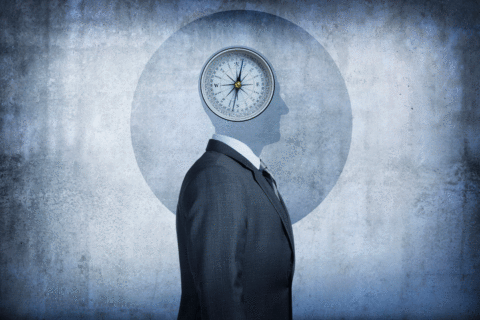Africans move on from COVID-19 into the new normal, seeing the disruption as an opportunity to take a giant leap.
Despite the mistrust of COVID-19, its adverse effect on peoples’ finances caused a massive shift in buying patterns. African consumers accept the disruption if it leads to opportunities in the innovation of product offerings. Market research companies are needed now more than ever to provide big data for businesses to adapt to the new normal.
That is the Africa Insights conclusion from three principal researchers who spoke with Kim Smouter of ESOMAR at the Insights Festival 2020. Jumoke Adegbonmire of WillFran Consulting (Nigeria), Serge Mumbu of Target (Congo, Democratic People’s Republic), and Yannick Lefang of Kasi Insights (Canada), shared their insights on consumers, businesses and politics in Africa- to shed some light on the future outlook of the region, based on their consumer research in the continent.
Scepticism breeds further distrust in government
The death toll from COVID-19 and number of infections raised alarms globally, yet many Africans seem to dismiss the disease entirely.
Research insights showed that panellists did not believe COVID-19 is as dangerous as it is said to be according to the media. Nigerians in particular were eager to have the lockdown lifted so they could get back to work, as they didn’t believe much had changed since the pandemic started. According to Jumoke, 71% surveyed simply wanted to go back to normal. This is accentuated by the fact that hundreds queued up at banks when the lockdown was lifted, with little social distancing maintained.
The situation was similar in the Democratic Republic of Congo (DRC), where Serge noted that 60% surveyed did not believe COVID-19 was dangerous, refused to take a vaccine, and would instead rely on traditional medicine. This was largely due to the perception of a low number the virus victims, comparing to the Ebola crisis), as well as seeing public figures without facemasks. Thus many consumers believed in conspiracy theories such as COVID-19 being a Western export, or a ploy to reduce the population of Africa.
This led to mistrust in the government who believed to be handling the crisis poorly. For example, in South Africa with the harshest restrictions, trust in government was high. After the lockdown, the country recorded the trust in the government hit an all-time low.
Consumer confidence causes a shift in buying behaviours
Despite the scepticism, consumers’ confidence decreased, and many Africans were afraid; at least in the beginning when COVID-19 was declared a pandemic. According to Yannick, panellists indicated increased anxiety from February to March. However, the root of fear was not due to a health crisis but of a financial crisis. Many Africans were afraid of what a lockdown and recession meant to their pockets and their livelihood.
Many businesses in Africa could not digitalise their operations so a large number of workers could not work remotely- the only way to earn was to go to work. Therefore a lot of Africans were eager to go back to the office.
Decreasing confidence led to changes in buying habits. Consumers classed mobile data, airtime, and hand sanitizers as essential products. Indeed in Nigeria, the National Communication Commission (NCC) reported 5 million new data subscribers during the lockdown. After the lockdown, consumer spending shifted to non-essentials like entertainment and beauty products.
With regards to physical shopping, consumers bought less frequently, instead of buying goods in bulk. There was an increase in online shopping, albeit rather slow. This explained Africa’s largest e-commerce company, Jumia, reporting a loss, while global leader Amazon confirmed profits in the same period.
While in recession, you would think Africans valued promotions and discounts, however, this was not case. Many people surveyed were expecting brands to innovate and improve their services. For example, a flower delivery company changed to delivering food during the lockdown. In the future, companies will need to innovate quickly to capture the market and get ahead of their rivals. In the new normal, people are looking at businesses to increase their value proposition rather than stick to standard sales and discount tactics.
What does the future hold for Africa?
According to Jumoke, around 40% of typical people that take surveys were young people between 18-35 years old, who hold a large buying power in Nigeria, and have increased their online presence. Nevertheless, a large proportion were financially affected due to COVID-19. Similar in DRC, where people had to focus spending on food and transport. Despite the clear preference for delivery of goods, people would not accept an increase in prices. Such data can determine a company’s success or failure in the new normal.
The researchers noted that the new normal or disruption has made young people more conscious, frustrated, and demanding change. This has led to protests and calls for change in government in Mali, the youth-led #ENDSARS in Nigeria, and unorthodox trends such as increasing acceptance of digitalisation. To a large extent, there is a wind of change in the continent, and it depends on Africans to seize the moment if the continent is to rise.
They also agree the biggest problem in Africa is a failure of leadership, and due to mistrust in government many business owners have to rely on their innovation to survive. Businesses cannot adapt to the changing patterns without big data, and this is where market research companies come in.
Data provided by market research companies help businesses better understand their market so they can innovate, adapt to changing times, and use data to transform products/services. Whether Africa becomes the new Asia depends on the ability of businesses to leverage this disruption and see it as an opportunity to innovate business processes and operations.


